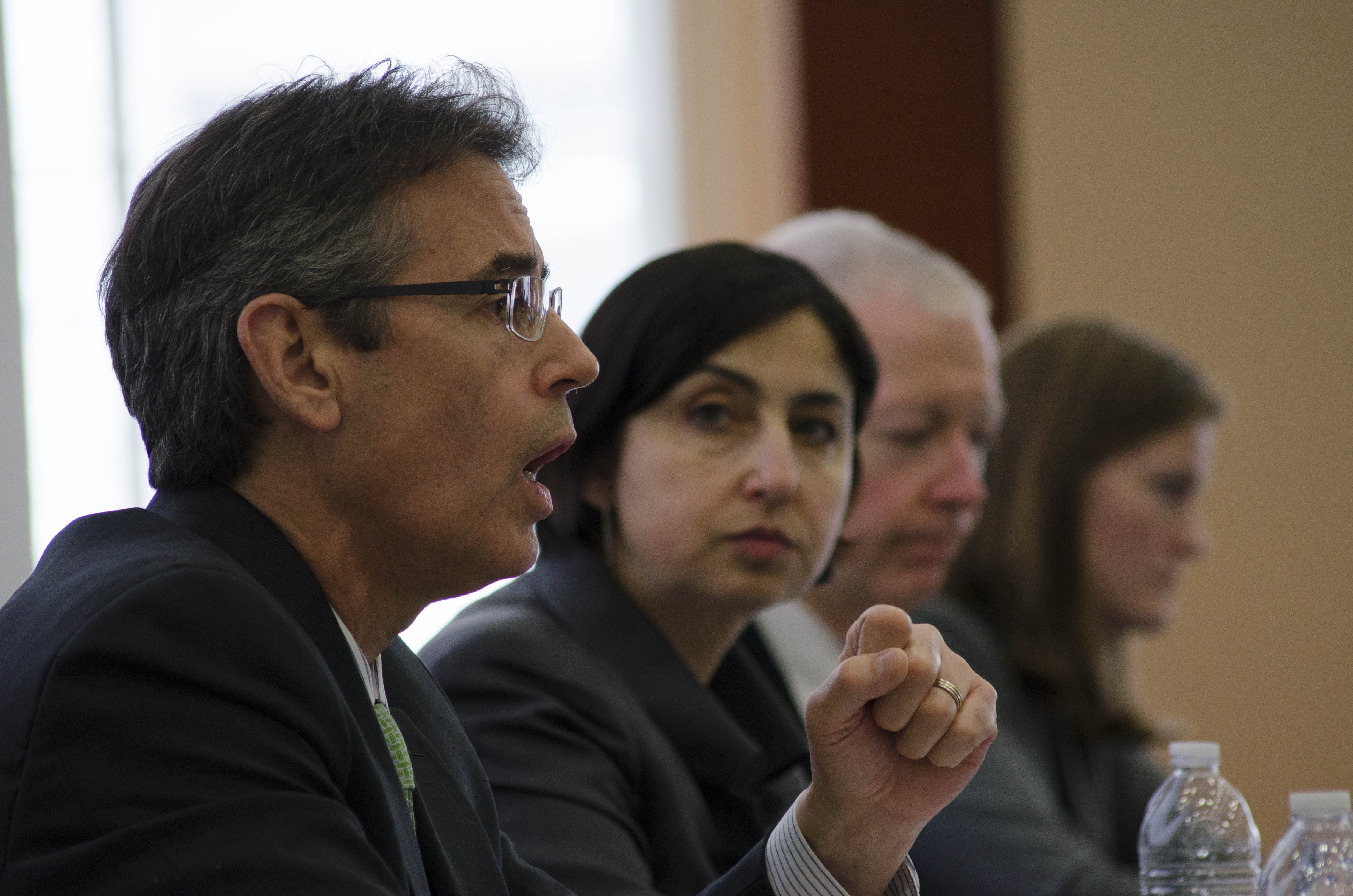Ukraine political attitudes split, Crimeans turning to Russian sources for news

Washington, D.C. — Ukrainians’ political attitudes diverge by region despite the majority of the country turning to only a handful of top TV outlets for news, according to new survey results released today by the Broadcasting Board of Governors. The research shows Crimea as having a very different news market; in 2012, the top five news sources were Ukrainian, whereas now all five are Russia-based TV channels and social media.
People in the west, north, and center regions of Ukraine are more likely to hold a favorable view of the role played by U.S. in the crisis than those in the east, south, and Crimea. On the other hand, respondents in the east, south, and Crimea are more likely to see Russia as playing a mostly positive role. Support for economic reform, joining the EU, and NATO integration are similarly divided by region.
“The only consensus point across the country is that the vast majority of Ukrainians are opposed to foreign involvement in decisions about the country’s future,” said Neli Esipova, director of research, global migration and regional director for Gallup.
The crisis has taken a toll on the media environment in Ukraine, resulting in the cessation of broadcasts by some TV channels. However, these changes have not significantly affected Ukrainians’ sources for news.
“Only one in five Crimeans say the cessation of some Ukrainian TV channels in Crimea has changed their newsgathering habits, and only one in 10 Ukrainians outside Crimea say that the cessation in broadcasting of some Russian TV channels has changed their newsgathering habits,” said Sarah Glacel, senior audience research specialist at Radio Free Europe/Radio Liberty.
As in previous years, five Ukrainian television channels remain the top news sources for Ukrainians across ethnic groups and regions, with the exception of Crimea. Unlike the rest of Ukraine, the top sources for news in Crimea changed dramatically from 2012. All top sources in 2012 were Ukrainian, while in 2014 all five top sources were Russia-based, including social network Vkontakte.
The results of the survey, conducted April 21-29, 2014, showed that 83% of Crimeans felt that the results of the March 16 referendum on Crimea’s status likely reflected the views of most people there. This view is shared only by 30% in the rest of the country. Most Crimeans (74%) also responded that they believe that life would be better as part of Russia.
A research brief and presentation with further information about these findings can be found here, and a recording of the briefing will be added in the coming days. More information about the BBG’s media research series is available here.
